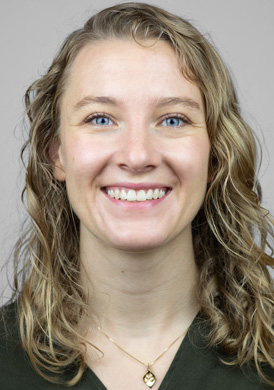Abstract
Many education researchers have sought to understand what prompts learning and what learning looks like. One answer found across the literature is that learning is a process that is preceded by articulating relevant ideas, begins when students recognize a gap in understanding (i.e., enter a state of cognitive conflict) and then work to resolve the gap in understanding (sometimes characterized as an epistemic game of sensemaking).
It follows, in this framework, that effective instruction should provide students with opportunities to recognize and resolve things that “don’t make sense.” Science-education-research-based instructional materials often take up this call with instructional sequences in which students are asked to make predictions about a counterintuitive phenomenon, then observe the phenomenon and (if appropriate) re-examine their thinking. Such sequences map neatly to the cognitive conflict/sensemaking model; the prediction guides students to articulate relevant ideas, and an observation that conflicts with the prediction makes gaps in understanding apparent.
For some curriculum designers, the act of predicting is particularly important because it not only calls students’ attention to counterintuitive phenomena, but also because it asks students to commit to and invest in a specific idea. The act of committing is thought to increase the likelihood that students will invest in resolving something that doesn’t make sense, rather than ignoring it or giving up before resolving the gap.
However, our team has observed that introductory physics students regularly engage in generative sensemaking without having committed to a model or prediction up front. We call attention to this observation because we see some distinct affordances of curricular materials that ask students to observe first. For example, observing first provides students more opportunity to make evidence-based predictions, rather than predicting based on assumed prior learning, intuition, or guessing; observing first may mitigate students’ feeling that physics is counterintuitive or the curriculum is “tricky.”
Please note that this seminar will be on a Tuesday in an even week.
Welcome!
Bio
Dr. Lisa Goodhew is an assistant professor of physics at Seattle Pacific University.
The bi-weekly ODD seminar series at CCSE
The Open Discussions on Didactics (ODD) is a seminar series on Mondays at 13:00-14:00 every other week (odd week numbers) at CCSE.
The seminar will be maximum one hour, often closer to half an hour. It is an informal arena to present and discuss learning theory, educational research and teaching experiences within computational science. To cater to the highly heterogeneous backgrounds and interests of students, teachers and researchers in our environment, we aim for seminars that introduce listeners to new ideas within a broad spectrum of aspects, and that invites reflection and discussion.
Presentations need not be mature and polished - to the contrary we hope that as many as possible wants to share undigested observations and reflections in short presentations of varied form and topics. We hope to have enough contributions to frequently have the meetings as lightning talk sessions, where three different speakers will each give a 5-10-minute presentation followed by discussion.
